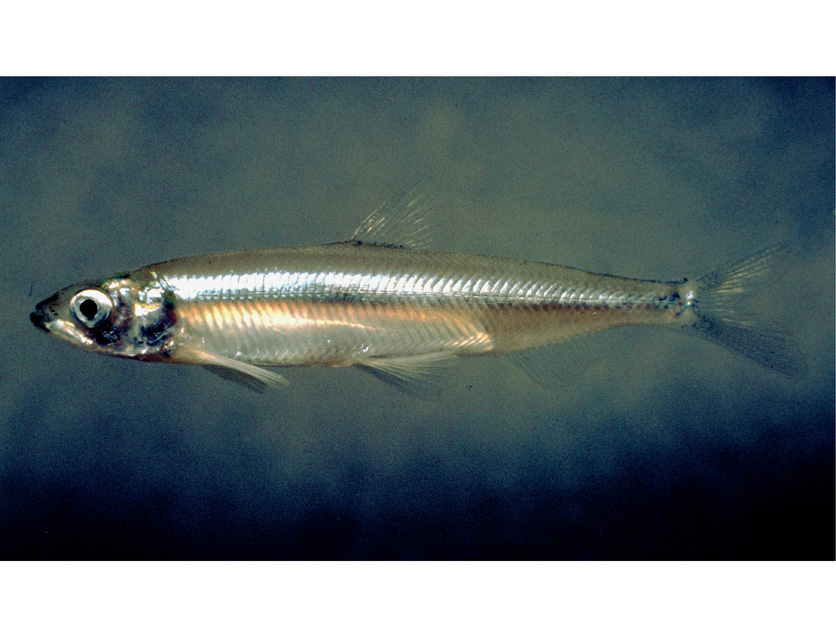Governor Gavin Newsom’s administration has rejected an environmental review by federal wildlife agencies known as the biological opinions. The state is taking a new direction with the State Water Project, redeploying the system as a counter measure to any pumping performed by the federally run Central Valley Project.
The Newsom administration released its own draft environmental review Thursday and announced it is seeking a long-term permit to take over all management of the project. The governor has also promised to sue the federal government over the biological opinions.
“We are once again marshaling our collective resources…to chart a new path forward for water policy in California,” said Gov. Newsom in a statement, which argued the federal opinions are “not scientifically adequate and fall short of protecting species and the state’s interests."
Bureau of Reclamation Commissioner Brenda Burman viewed the actions as breaking from the cooperative relationship state and federal agencies have nurtured since the beginning of the two projects.
"Today’s announcement by Governor Newsom is disappointing in his preference to have judges dictate these important projects instead of the career professionals at the federal and state levels who have developed a plan based on the best science and significant input from the public," she said. "If that’s their choice, we’ll see them in court.”
Environmental groups Defenders of Wildlife and Restore the Delta applauded Newsom's promise to litigate, calling it imperative that the biological opinions are challenged in order to reverse a decline in the ecosystem.
Newsom's decision follows a continuous drumbeat from opinion pieces, environmental advocates and editorial boards calling for Newsom to reject the biological opinions.
Now two water projects designed decades ago to operate in sync will be managed under separate environmental laws and separate pumping schedules. Until now, state and federal officials have worked in close collaboration to manage what is collectively one of the world’s largest water delivery systems.
The California Department of Water Resources (DWR) has begun the application process for obtaining a long-term permit from the California Department of Fish and Wildlife (CDFW) to operate the State Water Project. Over the coming months, CDFW will determine the requirements for meeting the needs of the California Endangered Species Act (CESA), a law that expands on the federal act.
According to the administration, a separate permit would provide more flexibility for CDFW to amend the permit as needed, based on developing science, while functioning independently of the federal environmental law.
DWR’s proposal includes measures to deliver “a block of environmental water” to offset pumping from the Central Valley Project. Like the opinions, DWR will increase pumping from the delta during storm events. Yet the plan would cap the amount available to export. It also states it will not increase exports for the State Water Project.
DWR maintains its proposed plan would also be based on “real-time management.” When the federal agencies released the biological opinions in October, the officials emphasized that pumping water from the delta will depend on real-time monitoring of endangered fish populations near the pumps. Biologists countered that monitoring a species numbering less than a thousand in any one location is impossible to accurately gauge.
DWR Director Karla Nemeth calls the state plan “a more sophisticated and nimble way” to manage the project.
“This is essential in order to capture water when it’s available and leave more water when and where fish need it,” she said.
The new environmental review proposes a number of alternatives to counter the federal operations of the Central Valley Project. Some include increasing spring and summer flows. It also suggests using physical barriers and other deterrents to keep fish away from the pumps.
The question of how the federal and state water projects would operate separately was raised earlier this year as water agencies grappled with the potential outcomes of Senate Bill 1. The controversial anti-Trump bill, vetoed by Newsom, would also have blocked the new biological opinions from applying to state water projects.
During a press event in August, Jeffrey Kightlinger, the general manager of the Metropolitan Water District of Southern California, said the federal and state pumps are so close together “you could almost throw a rock and hit them.”
“The idea that they would be operating under very different scenarios is not operationally feasible,” he said. “It would cause havoc.”
Jennifer Pierre, the general manager for State Water Contractors, said the old biological opinions relied on outdated science that suggested increasing flows alone would support fish habitat.
“If there’s more water supply, that doesn’t mean it’s better protection for fish,” she said. “That’s an unfortunate headline that is constantly coming around.”
California Natural Resources Secretary Wade Crowfoot and CalEPA Secretary Jared Blumenfeld write in a related op-ed for CalMatters Thursday that the administration is still pursuing the Voluntary Agreements for Bay-Delta flows and will release its draft recommendations for the Water Resilience Portfolio in December.
California Citrus Mutual issued its own statement calling the lawsuit "incredibly dissappointing."
"While we appreciate the Administration's commitment to continuing with the Voluntary Agreement negotiations, a lawsuit will arguably derail the progress made here to fore," the trade group writes. "Existing practices are not protective of fish and are unsustainable from a water supply perspective."


